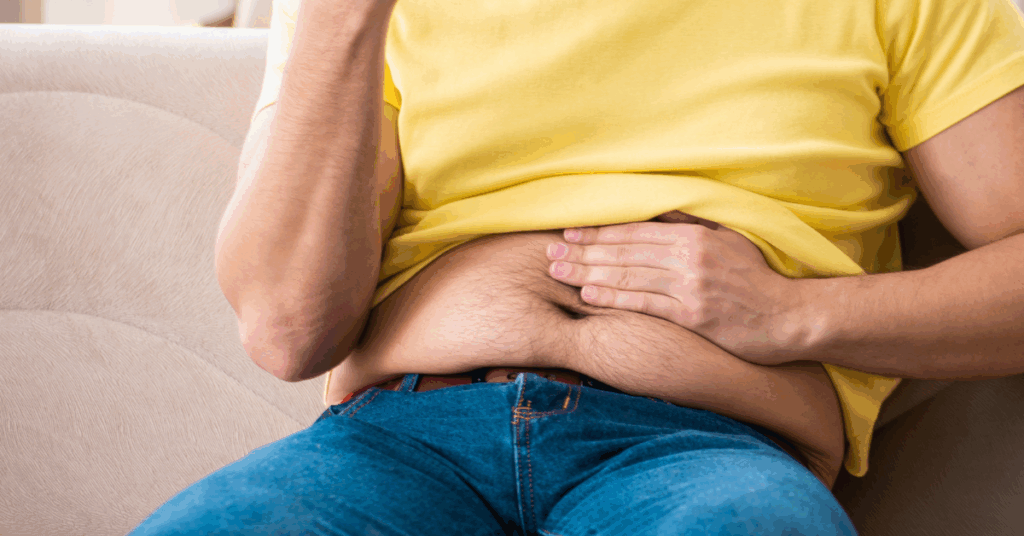
Why Am I Always Bloated After Weight Loss Surgery? You’re Not Imagining It
Why am I always bloated after weight loss surgery? This is a question many patients ask but often feel embarrassed to say aloud. Bloating can make you feel full, uncomfortable, or even in pain. After a major procedure like LSG, the Spatz Balloon, or ESG, your digestive system changes. Those changes can affect how your body handles food, fluids, and gas. If bloating is a daily struggle for you, you’re not alone. Understanding why it happens, and what you can do about it, can help you feel more in control of your recovery.
What Is Bloating and Why Does It Happen?
Bloating is a feeling of tightness, pressure, or fullness in the stomach. In many cases, it also comes with gas, burping, or visible swelling. After weight loss surgery, your stomach and intestines go through major adjustments. As a result, these changes can significantly affect digestion and how food moves through your system. Furthermore, your smaller stomach pouch fills faster, which increases gas buildup. This may lead to discomfort or even pain. Therefore, asking yourself, why am I always bloated after weight loss surgery, is a valid concern. It may be related to the types of foods you eat, the way you eat them, or how your gut is healing over time.
LSG and Bloating: What You Should Know
LSG, or laparoscopic sleeve gastrectomy, removes most of the stomach and creates a narrow tube. This limits how much you can eat. While weight loss results are impressive, some patients experience bloating. The new stomach shape may slow digestion. Food can stay in the pouch longer, leading to gas. In addition, the smaller stomach may struggle to break down dense meals. Why am I always bloated after weight loss surgery? It may be because your sleeve needs more time to process meals.
Bloating With the Spatz Balloon
The Spatz Balloon is a non-surgical, adjustable device placed inside the stomach. It fills part of the stomach to reduce hunger. This helps patients feel full faster. However, during the first weeks, many people feel bloated. Your stomach sees the balloon as a foreign object. This can increase pressure, gas, and discomfort. Over time, most patients adapt. But for some, bloating continues if they overeat or consume carbonated drinks. If you’re wondering why am I always bloated after weight loss surgery, the balloon’s presence may be part of the reason.
ESG and Digestive Slowdown
Endoscopic sleeve gastroplasty (ESG) is a newer, minimally invasive technique. It reduces stomach size using sutures placed via endoscopy. Like LSG, ESG slows the rate at which food moves through the digestive tract. This slower pace can create a sensation of fullness or bloating. Patients sometimes describe feeling heavy even after small meals. For those asking why am I always bloated after weight loss surgery, ESG can be a contributing factor, especially during the first few months. A soft, liquid-based diet can ease symptoms while your body adjusts.
Swallowed Air: A Hidden Cause of Bloating
You may not realize how much air you swallow while eating or drinking. Fast chewing, talking while eating, and using straws can all increase air intake. After bariatric surgery, your stomach holds much less. So even small amounts of trapped air can cause bloating. Try slowing down your meals, avoid carbonated drinks, and skip chewing gum. If you find yourself wondering why am I always bloated after weight loss surgery, look at how you’re eating as much as what you’re eating.
The Role of Diet After Surgery
Some foods cause more bloating than others. Beans, broccoli, onions, and dairy are common triggers. Artificial sweeteners can also create gas. After weight loss surgery, your stomach becomes more sensitive. Foods that never caused bloating before may now lead to discomfort. Track your meals and symptoms for one week. Look for patterns. If why am I always bloated after weight loss surgery is a frequent thought, diet may be the root cause. Switching to softer, low-residue foods can offer fast relief.
Dehydration and Constipation
Dehydration slows digestion. When your body lacks fluids, food moves more slowly through your gut. This leads to constipation, which often causes bloating. After surgery, your hydration needs increase. But drinking enough can be hard when your stomach is small. Sip water throughout the day. Avoid drinking with meals to prevent discomfort. If constipation persists, talk to your provider about safe remedies. Why am I always bloated after weight loss surgery? The answer could be in your fluid intake and bathroom habits.
Are You Chewing Enough?
Chewing is the first step in digestion. After surgery, this step becomes even more important. Incomplete chewing leads to larger food pieces reaching your stomach. These pieces take longer to break down and create more gas. Make each bite count. Chew slowly and thoroughly. Place your fork down between bites. Avoid distractions while eating.
How to Manage Daily Bloating
Small steps can make a big difference. Start by eating slower and chewing more. Avoid trigger foods. Sip water throughout the day. Limit carbonated drinks and straws. Keep a food journal. Add probiotics to your routine. These tips can reduce pressure and improve digestion. It’s a question with many possible answers, but daily habits offer powerful solutions. Keep experimenting until you find what works for you.
When to Call Your Doctor
Occasional bloating is normal. Persistent, painful bloating is not. If you also have vomiting, diarrhea, or severe cramping, contact your doctor. These may signal complications like blockages or ulcers. Especially after Spatz Balloon or ESG placement, you should report ongoing symptoms. Early treatment helps avoid bigger problems. You deserve answers and relief.
📞 Still wondering “why am I always bloated after weight loss surgery”? Call us or visit our contact page to speak with a specialist today.
